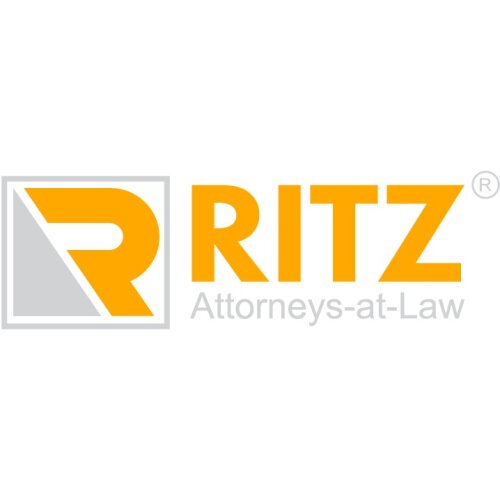Best Water Law Lawyers in Malawi
Share your needs with us, get contacted by law firms.
Free. Takes 2 min.
Or refine your search by selecting a city:
List of the best lawyers in Malawi
About Water Law in Malawi
Water Law in Malawi encompasses the statutes, regulations, and customary practices that govern the management, allocation, and use of water resources in the country. These laws play a crucial role in ensuring access to water for domestic, agricultural, commercial, and environmental needs. The legal framework is designed to promote the sustainable use, development, and protection of water resources for present and future generations. It establishes the rights and responsibilities of individuals, communities, businesses, and the government regarding water use and conservation.
Why You May Need a Lawyer
There are various situations where legal advice or representation is essential in matters related to Water Law in Malawi. Common scenarios include disputes over access to water sources, interpretation of water rights, compliance with water use regulations or permits, and conflicts between neighboring landowners regarding water flow or contamination. Legal help is also important for organizations or businesses looking to secure water permits or needing guidance on the environmental impact of their operations. Additionally, changes in government policy or the implementation of community water projects may require legal assistance to ensure compliance and to protect individual or community interests.
Local Laws Overview
Malawi's Water Law is shaped principally by the Water Resources Act of 2013, which replaced earlier colonial-era legislation to suit contemporary needs. The law establishes the National Water Resources Authority (NWRA) to regulate water resources, manage permits, and resolve disputes. Key aspects include:
- All water in Malawi is vested in the State for public trust and management.
- Use of water for domestic purposes from a public stream or groundwater source does not require a permit, but other uses (agricultural, industrial, commercial) generally do.
- The Act specifies the process for applying for and reviewing water permits, including requirements for Environmental Impact Assessments for larger projects.
- Penalties exist for pollution, unauthorized abstraction, or alteration of water sources.
- Customary rights and local water management practices are recognized, especially for communities in rural areas, but must align with national policy.
- The law provides mechanisms for resolving disputes and appeals relating to water use and management.
- Public participation in decision-making is encouraged, with stakeholders able to provide input on major water projects.
Frequently Asked Questions
What is the main law governing water use in Malawi?
The primary legislation is the Water Resources Act of 2013, which outlines the management, allocation, and protection of water resources in Malawi.
Who owns the water resources in Malawi?
All water in Malawi is owned by the State, held in trust for the people, and managed on their behalf.
Do I need a permit to use water from a river or borehole?
Domestic use generally does not require a permit, but commercial, agricultural, or industrial use typically does. Permits are issued by the National Water Resources Authority.
Can I be penalized for polluting a water source?
Yes, under the Water Resources Act, individuals or companies can be fined or prosecuted for polluting or contaminating water sources.
How do I resolve a dispute over water rights or access?
Disputes can be addressed through local customary mechanisms or by applying to the National Water Resources Authority for mediation or adjudication.
What is an Environmental Impact Assessment and when is it needed?
An Environmental Impact Assessment (EIA) is a study to assess the potential environmental effects of a proposed project. An EIA is required for major water-related projects before approval is granted.
Are community water management practices recognized by law?
Yes, customary practices are recognized, but they must be consistent with national policy and do not supersede State authority.
How can I apply for a water permit?
Applications are submitted to the National Water Resources Authority, often with supporting documentation and, for significant uses, an Environmental Impact Assessment.
Can water rights be transferred or sold?
Water rights in Malawi are not owned privately and cannot be transferred or sold without government approval. Any transfers must comply with the law and are subject to approval by the Authority.
Are there organizations that can help with water law issues?
Yes, both governmental and non-governmental organizations provide support, guidance, and advocacy on water rights and law matters.
Additional Resources
If you are dealing with a water law issue in Malawi, the following organizations and bodies may provide assistance, advice, or further information:
- National Water Resources Authority (NWRA) - Regulates and manages permits, disputes, and enforcement of water law.
- Ministry of Agriculture, Irrigation and Water Development - Oversees water policy and strategy nationwide.
- Environmental Affairs Department - Handles Environmental Impact Assessments and regulates pollution issues.
- Legal Aid Bureau - Offers legal support and guidance for individuals with limited means.
- Malawi Law Society - Helps connect individuals to qualified water law practitioners.
- Non-governmental organizations such as WaterAid Malawi and community-based organizations involved in water advocacy and support.
Next Steps
If you require legal assistance in a water law matter, consider the following steps:
- Identify the specific water law issue you are facing, such as access, permits, pollution, or disputes.
- Gather all related documentation, such as permits, correspondence, or community agreements.
- Contact the National Water Resources Authority or another relevant government body for initial guidance.
- If the matter is complex or you are unsure of your legal rights, seek advice from a lawyer who specializes in water law or environmental issues.
- Consider approaching organizations like the Legal Aid Bureau if you need assistance but have limited financial resources.
- Be proactive in documenting your actions, communications, and any impacts relating to water use or disputes.
Early engagement with professionals and relevant authorities can help resolve water law issues efficiently and protect your rights and interests.
Lawzana helps you find the best lawyers and law firms in Malawi through a curated and pre-screened list of qualified legal professionals. Our platform offers rankings and detailed profiles of attorneys and law firms, allowing you to compare based on practice areas, including Water Law, experience, and client feedback.
Each profile includes a description of the firm's areas of practice, client reviews, team members and partners, year of establishment, spoken languages, office locations, contact information, social media presence, and any published articles or resources. Most firms on our platform speak English and are experienced in both local and international legal matters.
Get a quote from top-rated law firms in Malawi — quickly, securely, and without unnecessary hassle.
Disclaimer:
The information provided on this page is for general informational purposes only and does not constitute legal advice. While we strive to ensure the accuracy and relevance of the content, legal information may change over time, and interpretations of the law can vary. You should always consult with a qualified legal professional for advice specific to your situation.
We disclaim all liability for actions taken or not taken based on the content of this page. If you believe any information is incorrect or outdated, please contact us, and we will review and update it where appropriate.
Browse water law law firms by city in Malawi
Refine your search by selecting a city.
















